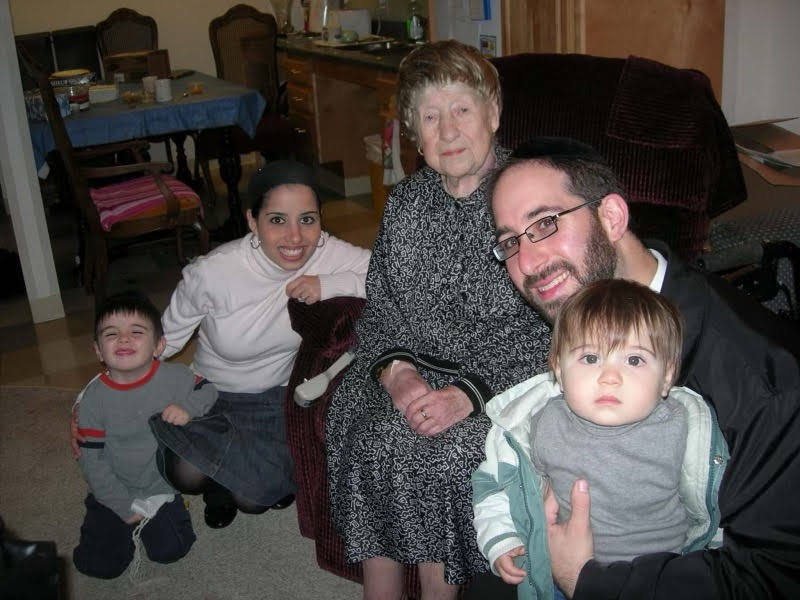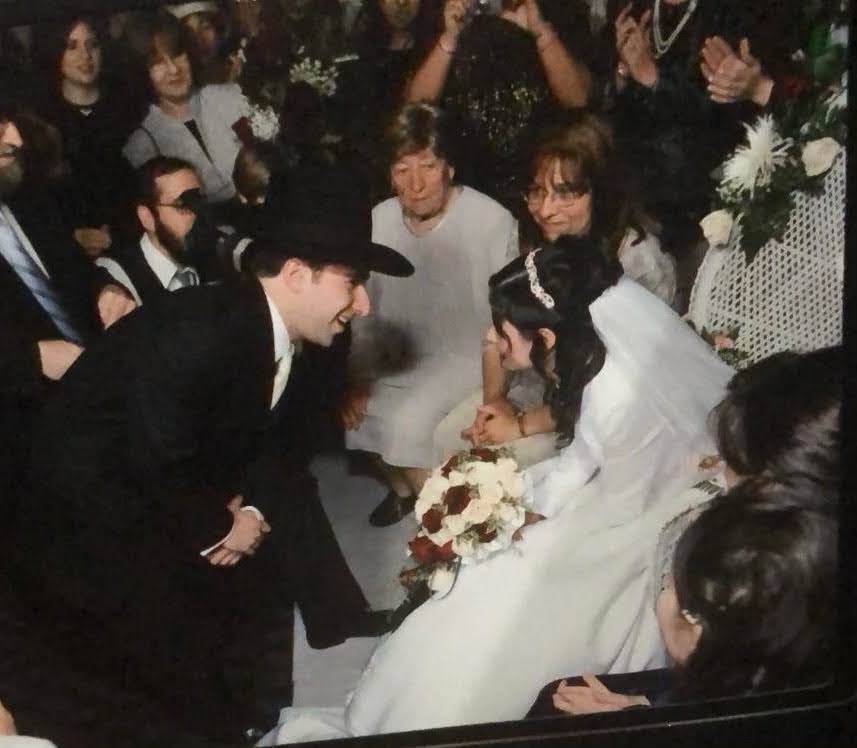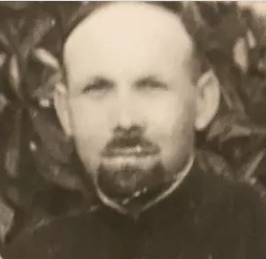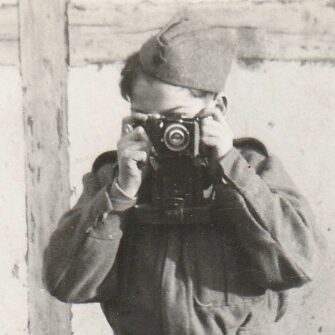Faige Merin Porter (Puchtik) was born in Horodok, Ukraine, on March 15, 1909. She lived with her parents, Nosson and Baila, along with seven brothers and sisters: Yankel, Aron, Sender, Zisya, Rivka, Chana, and Elka. Faige’s father, Nosson, owned a flaxseed oil business and was a melamed (teacher). Horodok was a quiet shtetl surrounded by large groves of pine trees. Faige would spend afternoons with friends collecting blueberries and wildflowers as they day-dreamed about their futures.
In 1937, Faige married Srulik Porter (Yisroel Puchtik), born in Horodok, Ukraine, in 1906. Faige and Srulik were soon blessed with a baby girl, Chaya Yudell. Two years later, another baby girl arrived. They named her Pessel. However, very soon, their simple shtetl life came to a terrifying end. In 1939, the German Army invaded Poland. As the Polish Army retreated, they passed through Horodok, where they encountered Russian troops. The clashing armies left Horodok in flames. It was Erev Yom Kippur, and the Jews ran into the forest to save their lives, leaving the food that they had prepared to eat before the fast on their tables.
Faige, Srulik, and their family relocated to the nearby shtetl of Manyevitch, which was later taken over by the Nazis in 1941. The Nazis stole the population’s gold, silver, and furs, giving the local Ukrainians permission to rob the Jews. Every Jew had to wear a yellow Star of David on their clothes, and food became scarce. Srulik and other Jewish men were forced to do manual labor for the Germans.
In the late summer of 1941, the Einsatzgruppen marched into Manyevitch. They rounded up the non-disabled Jewish men, heads of households, and Jewish leaders of the community and took them away in trucks to a large pit outside of town. They were cruelly beaten, stripped naked, and shot into the pit. In one day, 375 Jewish fathers, husbands, brothers, and sons, were killed in an area called the “The Horses Grave.” Faige and Srulik’s brothers and brothers-in-law were killed as well as Srulik’s father.
Srulik managed to escape the first round-up by the Nazis miraculously. On September 2, 1942, the Jews of Manyevitch were enclosed into a ghetto and surrounded by guards. Srulik knew that he must do something drastic. He kissed his wife and two young daughters goodbye and sneaked out of the ghetto disguised as a Russian peasant to join the partisans.
Meanwhile, Faige stayed in the ghetto with their daughters and extended family. One Friday night, the Nazis herded all of the Jews into houses on one street. Faige sneaked across the street to where her cousins lived with an idea to create chaos by setting the town on fire, giving the Jews time to escape into the forest. However, Faige couldn’t find her cousins and, as she crossed the street, was caught outside after curfew by a Ukrainian guard who pointed a gun to her head. “Why waste a bullet on me tonight, when tomorrow you’re going to kill us all anyway?” she bravely challenged. Miraculously, he did not shoot her.
Faige couldn’t return home for fear of being shot along the way. Instead, she hid in a barn overnight, thinking with anguish of her children and the rest of her family, who were in danger. The following day, Shabbos morning on the 23rd of Elul 1942, the Nazis rounded up all of the remaining Jews of Manyevitch and forced them to the outskirts of town where a huge pit had been dug. On that day, every single remaining member of Faige’s family, including her parents, sisters, and two little daughters, Pessel and Chaya Yudel, ages two and four, were murdered along with Srulik’s family. All of the Jews of Manyevitch were killed, more than 2,000 people.
Faige was hiding in the barn when Nazis came that morning searching for Jews, but they did not notice her. She stayed in the barn all day, hearing screams as gunshots rang through the air. The next day, Manyevitch was a ghost town. Faige returned to her cousins’ home and discovered them hiding in a nearby hut’s unfinished attic. Faige and her cousins escaped into the forest, where they stayed hidden, living off berries and whatever they could find to eat.
Meanwhile, Srulik heard that everyone had been killed in Manyevitch. He now focused even more attention on his mission against the Nazis, fighting in the Kruk-Max Otryad. Months passed, and he got word that a cousin of his had survived. With trepidation and hope, Srulik made his way back to that area, but instead of finding a tall man, he found a small woman–Faige! She weighed only eighty pounds as Srulik carried her back to his unit. After Srulik nursed her back to health, Faige became a cook and nurse for the partisans. One partisan credited Faige with saving his life. As a nurse, she made salves out of warm ashes and flour, mixing them into a paste and putting it on bandages to help the men who had blisters, wounds, or sores from the cold.
As time went on, the partisan group broke into two groups: the fighters and civilians. The Russian commander, Nikolai Konishchuk (Kruk), thought the family camp was becoming a burden for the fighters as now hundreds of people needed to be fed and protected. The partisans were the ones who went into the villages to get the food and supplies needed. The commander decided to sever ties with the family camp and move to a different location. Srulik knew that these young children, women, and older men would not survive independently without the protection and food the partisans provided. Srulik asked the commander to allow two other partisans to help him, and they would take over the family camp. The commander agreed, and Srulik was given the responsibility of feeding and caring for hundreds of people’s needs.
After two years of living and fighting in the forest, they were liberated by the Russian Army in 1944. But where could they go? Faige and Srulik had lost their entire family. There was no one left alive in Manyevitch or Horodok. Faige did not even have a picture of her parents, family, or her daughters. They traveled to the nearby city of Rovno, where they settled in a small apartment that they shared with other families.
Faige became pregnant while the Nazis were bombing Rovno. When Faige was ready to give birth, the only place they could go was to a bombed-out hospital. There was no heat or light as she delivered a healthy baby boy on December 2, 1944. The baby was named Yaakov Nusson (Jack Nusan) after Srulik’s father, Yankel, and Faige’s father, Nusson.
During this time, Srulik worked with other survivors in a Russian shoe factory in Rovno. Srulik knew they would not survive on the meager wages the Soviets were paying, and so they sold the left-over leather on the black market. With the fear of Srulik being drafted into the Russian Army and the NKVD on their trail, Faige, Srulik, and baby Yaakov sneaked out of Russia with false papers. They obtained travel papers from “Breicha,” an underground Jewish Agency, which stated that they were with a group of Jewish Greek citizens caught in Russia during the war who were trying to get back home.
They traveled to the Bindermichl DP camp in Austria near the city of Linz. They had planned to go to Israel next, but Faige was not well; the malnutrition, living outside in the forest through two winters, and the unbearable losses had taken their toll on her. The doctor at the camp told Srulik that the extreme heat in Israel would be difficult for Faige to withstand, as she also had a weakened heart. After eight months in Bindermichl, Faige, Srulik, and Yaakov immigrated to America to be with Srulik’s only surviving brother, Morris. They traveled on the SS Marine Perch and arrived in New York in July 1946 before reuniting with Morris in Chicago.
Faige, Srulik, and Yaakov later relocated to Milwaukee, where they had extended relatives. They had two more children, Shlomo (Solomon) on November 9, 1947, and Bella Yenta on November 7, 1953. Faige and Srulik were generous people who felt strongly about giving people in need a place to stay. They opened their home to countless people throughout the years, and there were always Shabbos guests around their table.
Faige spent her later years in life speaking to classrooms about her experience as a partisan. Despite the horrors she endured, she lived a fulfilling life with gratitude and joy. Faige passed away on December 1, 2009, at the age of 100. She is remembered for her spirit, resilience, optimism, and unbroken faith in good people and G-d.

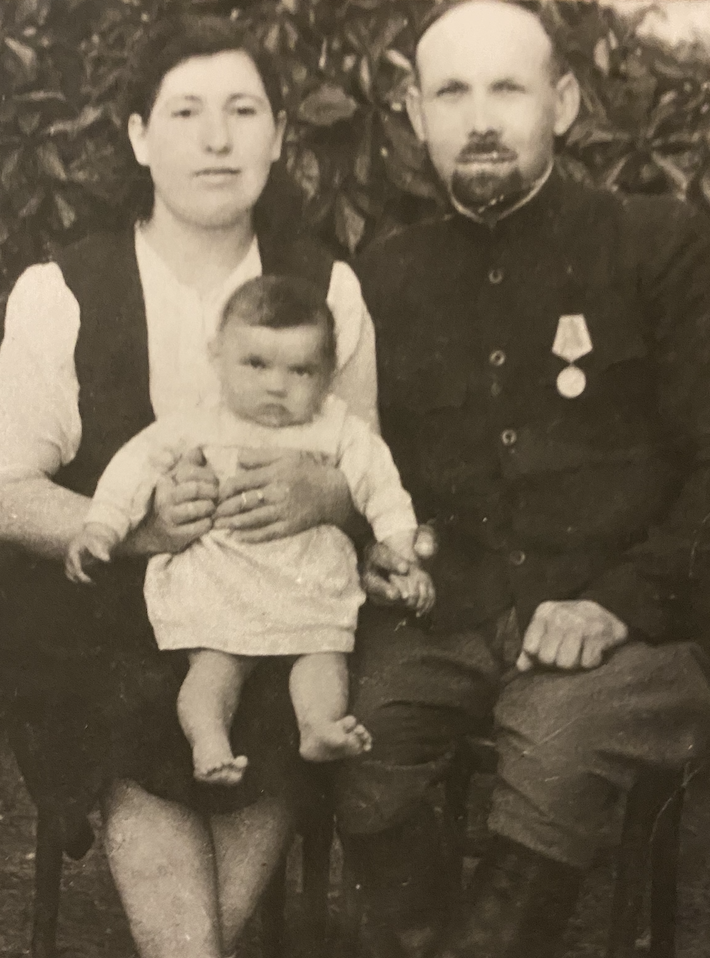
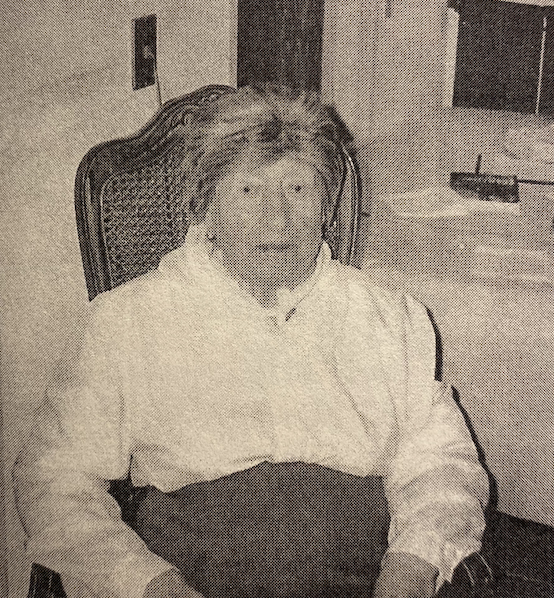
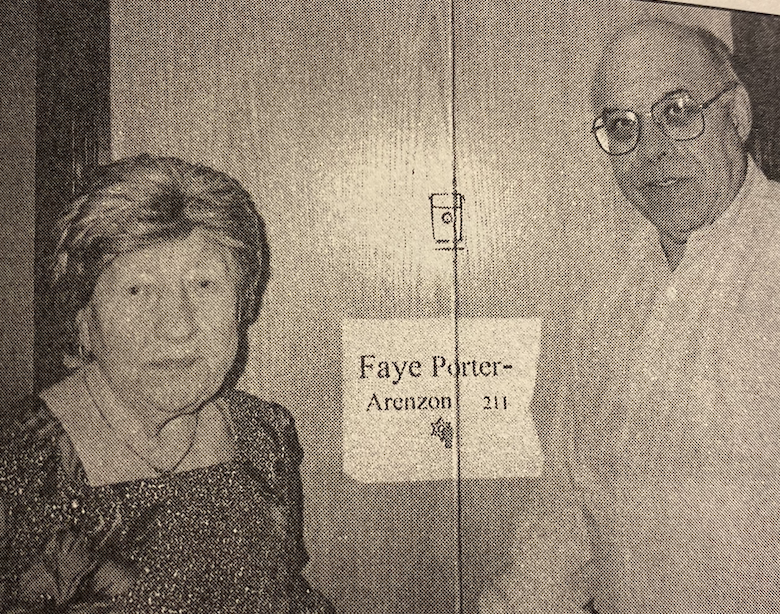
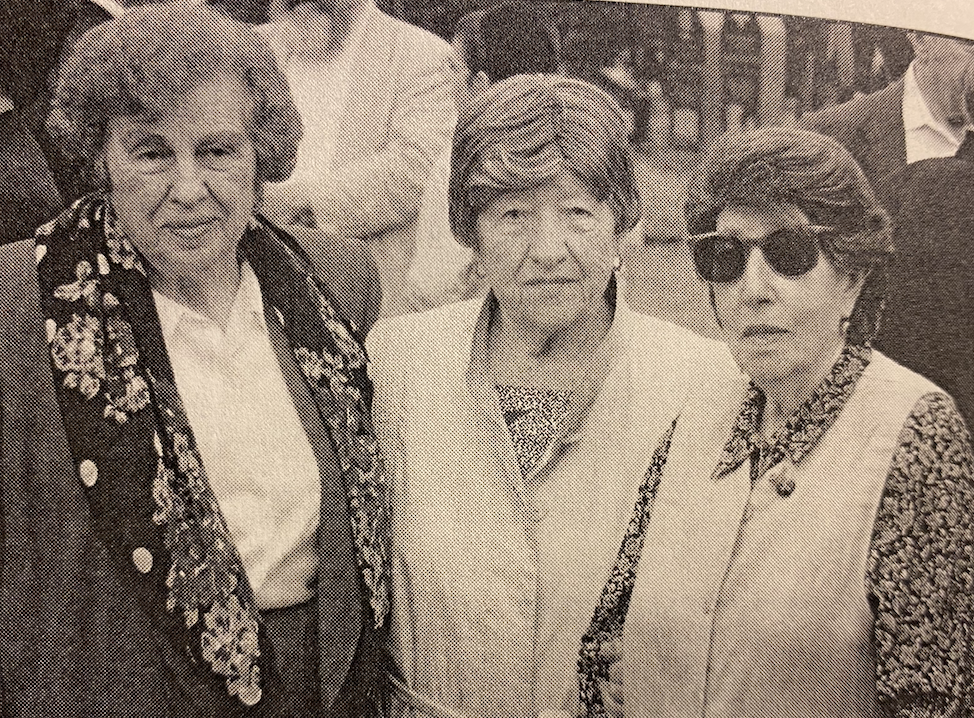
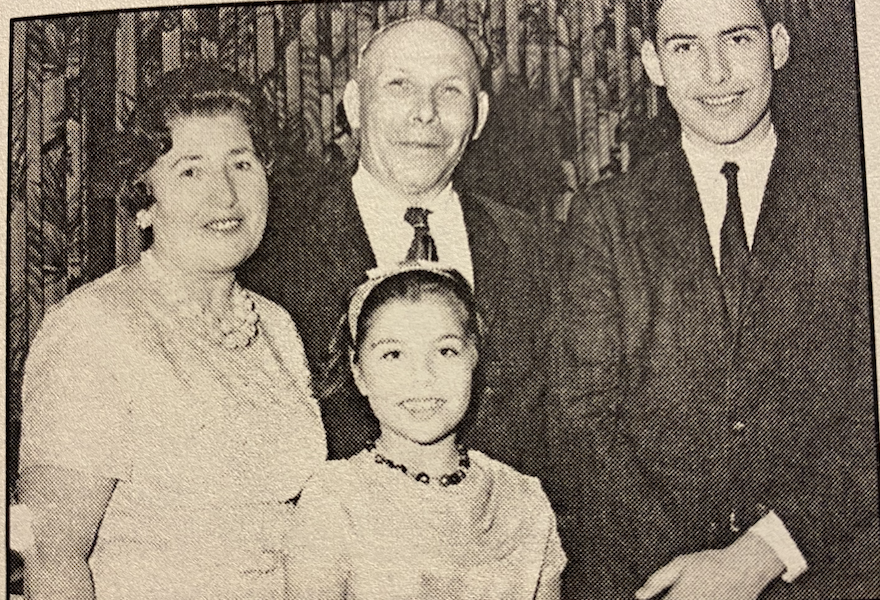
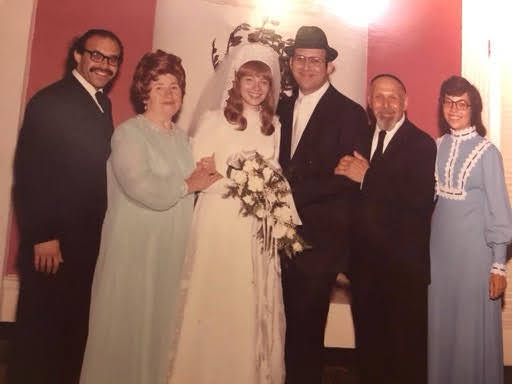
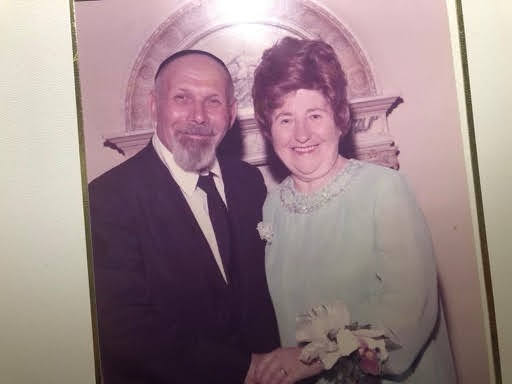
![IMG_20210201_145803[1] IMG_20210201_145803[1]](https://www.jewishpartisancommunity.org/wp-content/uploads/IMG_20210201_1458031.jpg)
![IMG_20210201_145808[1] IMG_20210201_145808[1]](https://www.jewishpartisancommunity.org/wp-content/uploads/IMG_20210201_1458081-1024x918.jpg)
![IMG_20210201_145812[1] IMG_20210201_145812[1]](https://www.jewishpartisancommunity.org/wp-content/uploads/IMG_20210201_1458121-e1612212065954.jpg)
![IMG_20210201_145816[1] IMG_20210201_145816[1]](https://www.jewishpartisancommunity.org/wp-content/uploads/IMG_20210201_1458161-e1612212095295-1024x746.jpg)
![IMG_20210201_145820[1] IMG_20210201_145820[1]](https://www.jewishpartisancommunity.org/wp-content/uploads/IMG_20210201_1458201-e1612212116752-1024x773.jpg)
![IMG_20210201_145828[1] IMG_20210201_145828[1]](https://www.jewishpartisancommunity.org/wp-content/uploads/IMG_20210201_1458281-493x1024.jpg)
